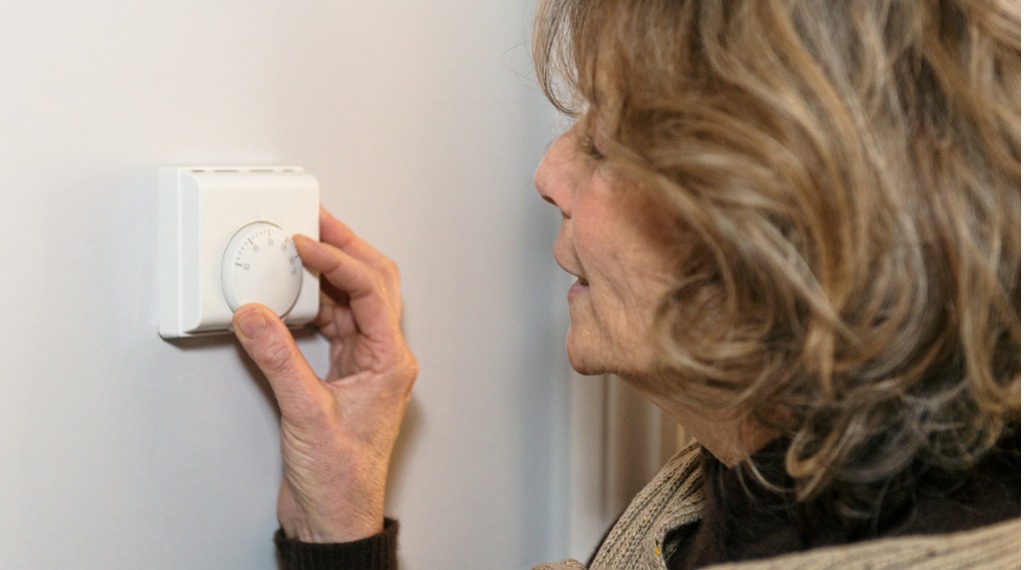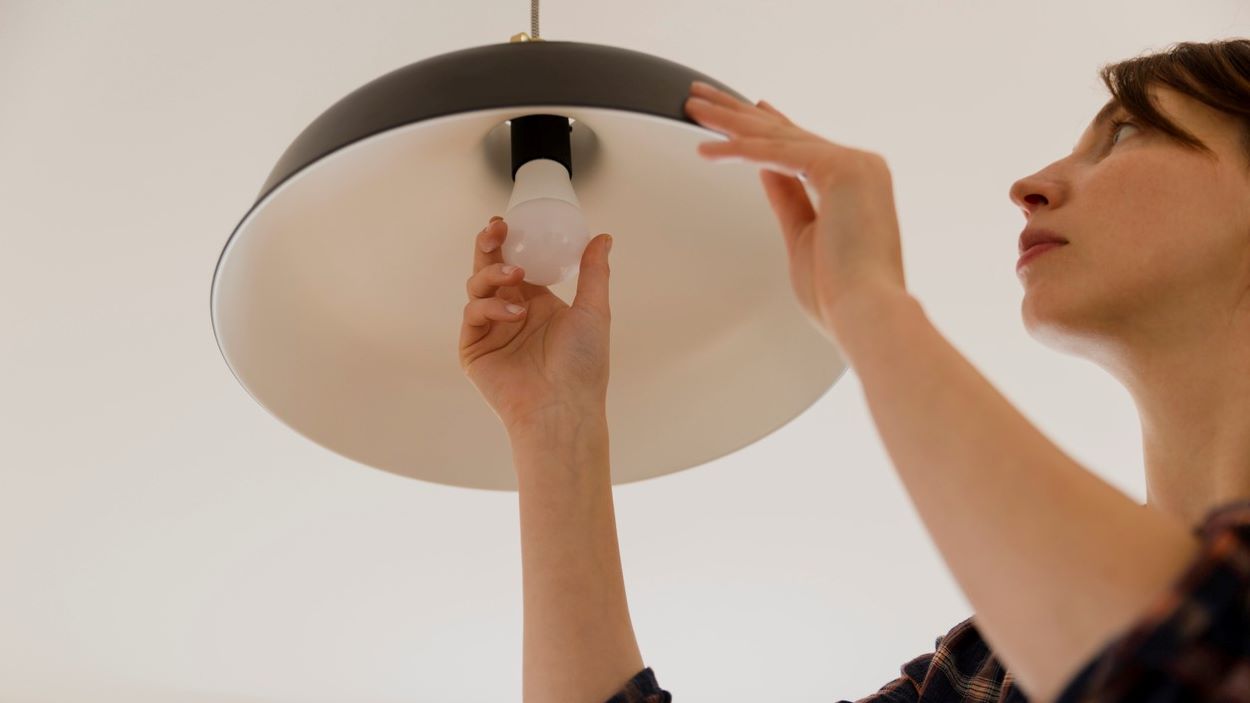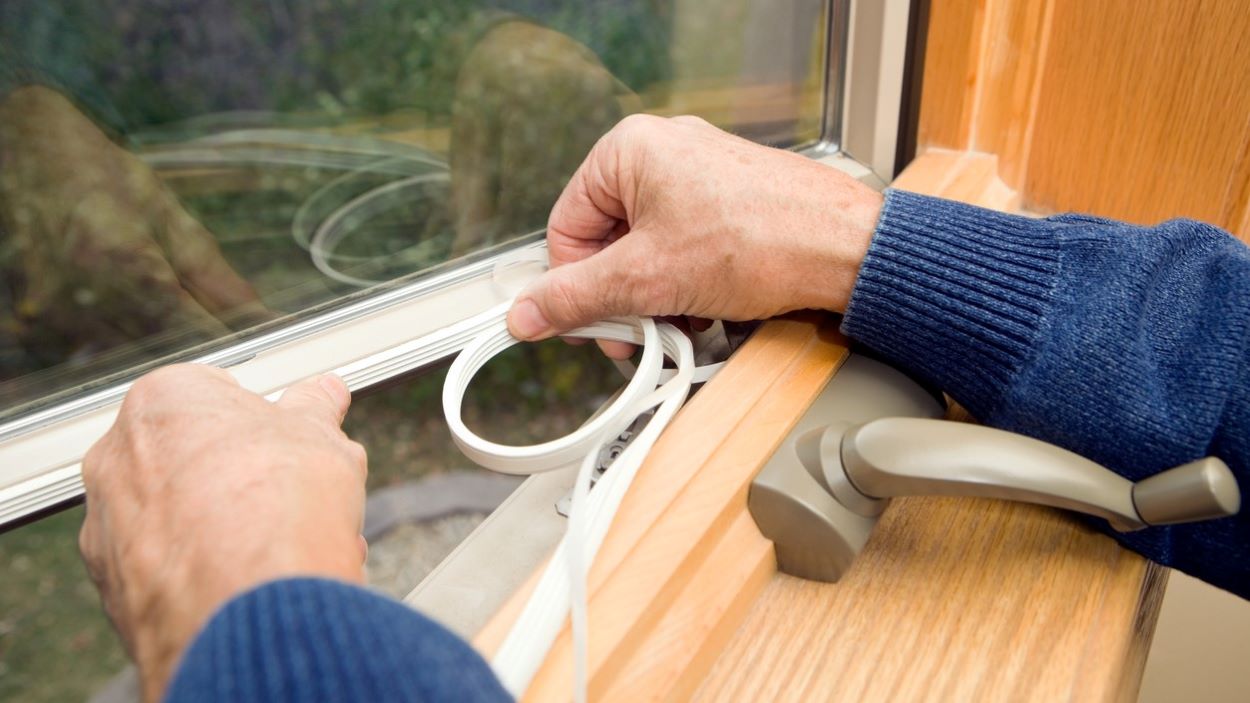The spread of Covid-19 means millions of people are now working from, schooling children and generally spending a lot of time at home.
We’ve put together some energy saving tips to help people reduce energy use at home, save money and help reduce carbon emissions during the Covid-19 crisis.
Brian Horne is a Senior Insights & Analytics Consultant at Energy Saving Trust.
He said: “With people travelling and consuming a lot less, there is a lot of carbon being saved. There are lots of little things people can do, to save more energy, too.”
Energy saving tips
Heating

Many people’s central heating is normally off during the day as people are at work or school. If you’re now at home all day you’ve probably adjusted your programmer so that the heating comes on during the day now, too. However, it’s important not to have it running all day if you don’t need it. We’re more active during the day and so you may find you’re still comfortable without the heating on all the time or as high as in the evenings.
To reduce your energy use further, only heat the rooms you use. If there’s only one of you at home, a portable electric heater pointed at your chair for a few hours through the day while you’re working might be enough, as opposed to heating the whole house.
You could also try turning the thermostat down degree by degree to find a comfortable temperature – each degree can typically save around £80 a year.
Unplugging chargers and standby
This is a big potential energy saver and could save up to £30 a year.
- unplug all chargers when not in use, especially any that have display lights
- turn off tablets, laptops and consoles as soon as you stop using them, and ideally unplug them
- do not charge electrical items once they reach 100% or leave them charging overnight
- unplug your internet router when the last person goes to bed
A standby saver allows you to turn all your appliances off standby in one go.
Check the instructions for any appliances you aren’t sure about. Some satellite and digital TV recorders may need to be left plugged in so they can keep track of any programmes you want to record.
Find out which appliances are the biggest energy users in your home or read on for more tips.
Lighting

You might find you’re using more lighting now that you’re in a home most of the day. Often artificial light during the day, especially when we’re working, is needed, but sometimes it’s unnecessary – try to avoid turning the lights on during the day unless you need them.
Make sure that everyone turns off every light when leaving a room and you can save up to £15 a year.
And now might be a good time to think about replacing any inefficient bulbs you still have around the house. You can save up to £3 per year for every traditional halogen bulb you switch to a similarly bright LED bulb, equivalent to around 5kg of CO2 emissions.
If the average UK household replaced all of their bulbs with LEDs, it would cost about £100 and save about £35 a year on bills.
Read our guide for more tips on energy efficient lighting.
Hot drinks
You’re probably drinking a lot more hot drinks at home than usual. Don’t overfill your kettle –boil the amount of water you need for the number of drinks you are making at the time.
Even if you drink a lot of hot drinks during the day, it’s still more energy efficient to boil what you need each time you make a drink rather than fill the kettle at the start of the day and boil too much water.
This small trick can save around £6 a year.
Keeping it clean
You may not be using your washing machine much more than usual, but you can save energy and money by only running it when full, using the eco mode, and washing at 30 degrees whenever possible.
Reduce your washing machine use by just one cycle per week and save £5 a year on energy.
Your dishwasher may be working overtime at the moment, so it’s a good time to make sure you’re getting the most out of it by only running it once full, and by using the eco setting.
More on how to save energy when using your washing machine.
Oven ready
If you are planning on using the oven, see if you can batch cook or bake several things at the same time, to take advantage of the energy used to heat it.
Similarly, if you batch cook, freezing the excess and reheating each portion in a microwave when you require it would use less energy than cooking the same meal from scratch every time. And it can help avoid throwing away surplus food that you can’t eat fast enough.
Dress well

With the office out of bounds, some home workers might be able to take advantage of dressing in warm and comfortable clothing at home without worrying about dress code. It might help you get away with turning the thermostat down one more notch.
Look at your bills
It may be a good time to have a look at your energy bills and match those with how you use energy at home. Perhaps another service provider offers a better deal. We’ve got more guidance on switching utility suppliers here.
Make good habits stick
Brian said: “It’s important that we don’t forget all the usual things we do to save energy; and all the other good habits like recycling, and avoiding single-use plastic.
“When this is all over, it gives us chance to think about which energy-saving things we have been doing differently that we can keep doing; shopping for the neighbours at the same time as for ourselves, less travelling by car and by plane, producing a lot less CO2 emissions. We can pick up these good habits and keep them going.”
Some general tips
Showers: Spend one minute less in the shower every day and save up to £7 per person, per year on your energy bills. Use a water-efficient showerhead and a household of four people could save an extra £70 a year on gas for water heating, plus £115 a year on water bills if they have a water meter.
Draught-proofing: Save around £20 a year on energy bills by effectively draught-proofing your home.

- read more of our home energy efficiency advice
- find out more about saving water
- explore our top 10 ways to save energy at home